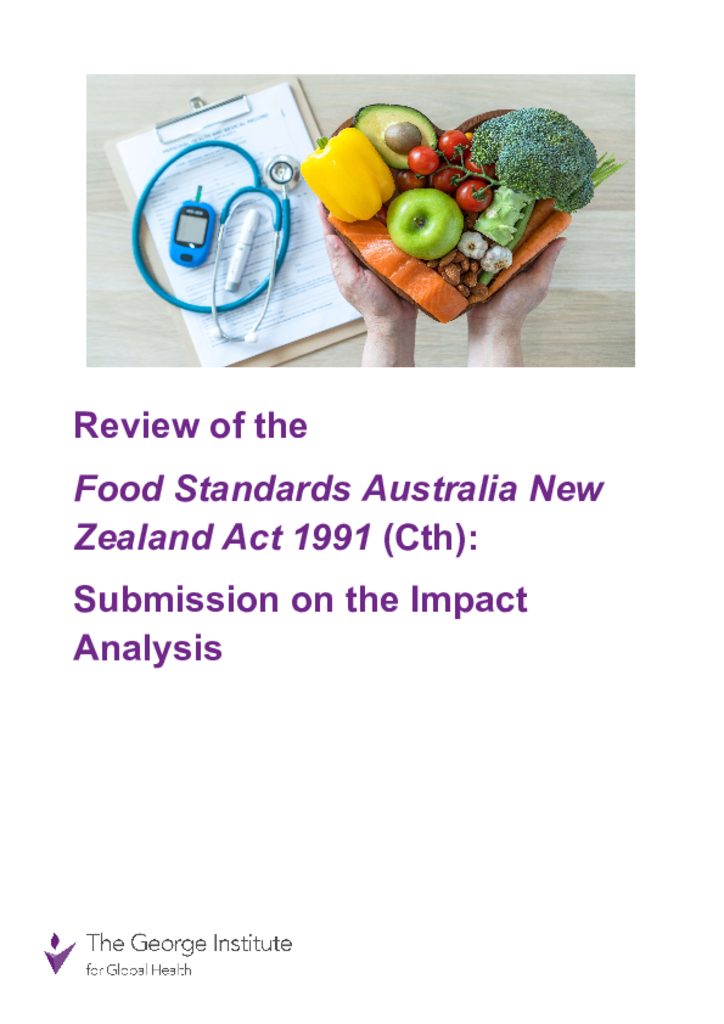
Review of the Food Standards Australia New Zealand Act 1991 (the Act) submission on the impact analysis
The George Institute is pleased to provide a submission to the review of the FSANZ Act.
The current food regulatory system in Australia and New Zealand excels at food safety but falls short on public health. A review of the Food Standards Australia New Zealand Act is underway to address this.
Key issues:
- Growing rates of diet-related chronic diseases like type-2 diabetes and obesity.
- Food regulations don't adequately consider the long-term health impact of what's on our plates.
- Public health and consumer voices haven't been well-represented in the proposals put forward for legislative change.
Proposed changes:
- Include a "Public Health Test" in the Act to ensure food regulations prioritize public health.
- Increase transparency and stakeholder engagement in the regulatory process.
- Address the specific needs of Aboriginal, Torres Strait Islander, and Māori communities.
The outcome of this review will significantly impact the health of Australians and New Zealanders. A strong public health focus is needed alongside measures to streamline the regulatory system.
The George Institute makes the following recommendations:
Strengthening Public Health:
- Define "public health" in the Act to consider diet-related risks.
- Introduce a "Public Health Test" to guide decisions and prioritize public health.
Improving Efficiency:
- Set time limits for reviewing food standards (3 years).
- Set time limits for processing proposals (3 years).
- Ensure Ministerial guidelines have priority.
- Remove the expedited application process.
Funding and Representation:
- Implement an industry levy to properly fund FSANZ.
- Include Aboriginal, Torres Strait Islander, and Māori voices in consultations.
Transparency and Methodology:
- Develop and consult on a risk-based framework separately.
- Re-do the cost-benefit analysis to properly consider public health impacts.
To read our full submission, please click here.







